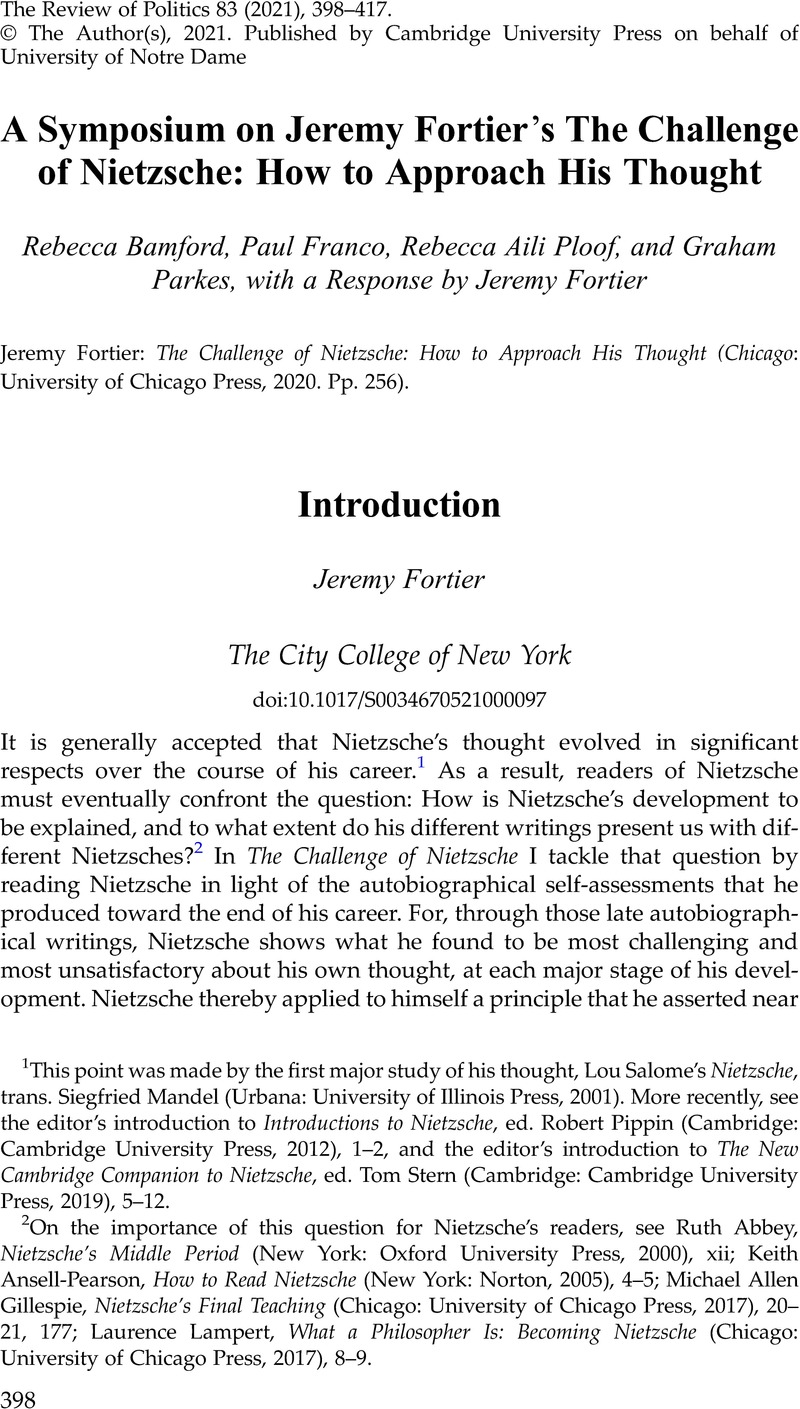No CrossRef data available.
Published online by Cambridge University Press: 15 June 2021

1 This point was made by the first major study of his thought, Salome's, Lou Nietzsche, trans. Mandel, Siegfried (Urbana: University of Illinois Press, 2001)Google Scholar. More recently, see the editor's introduction to Introductions to Nietzsche, ed. Pippin, Robert (Cambridge: Cambridge University Press, 2012), 1–2CrossRefGoogle Scholar, and the editor's introduction to The New Cambridge Companion to Nietzsche, ed. Stern, Tom (Cambridge: Cambridge University Press, 2019), 5–12CrossRefGoogle Scholar.
2 On the importance of this question for Nietzsche's readers, see Abbey, Ruth, Nietzsche's Middle Period (New York: Oxford University Press, 2000), xiiCrossRefGoogle Scholar; Ansell-Pearson, Keith, How to Read Nietzsche (New York: Norton, 2005), 4–5Google Scholar; Gillespie, Michael Allen, Nietzsche's Final Teaching (Chicago: University of Chicago Press, 2017), 20–21, 177CrossRefGoogle Scholar; Lampert, Laurence, What a Philosopher Is: Becoming Nietzsche (Chicago: University of Chicago Press, 2017), 8–9CrossRefGoogle Scholar.
3 Nietzsche, Schopenhauer as Educator, §8.